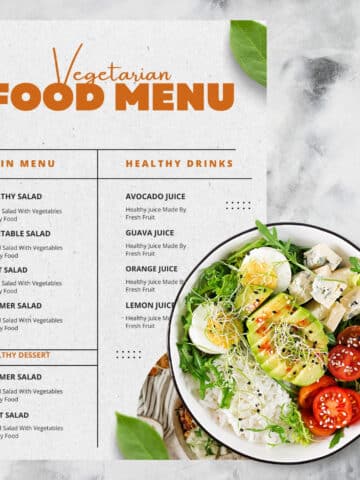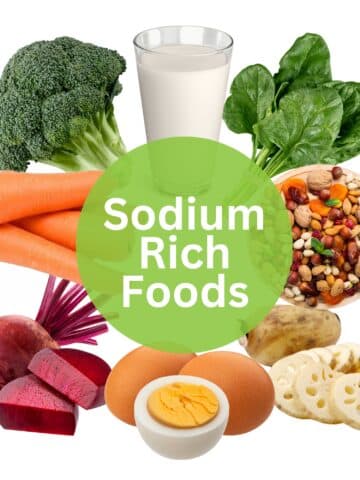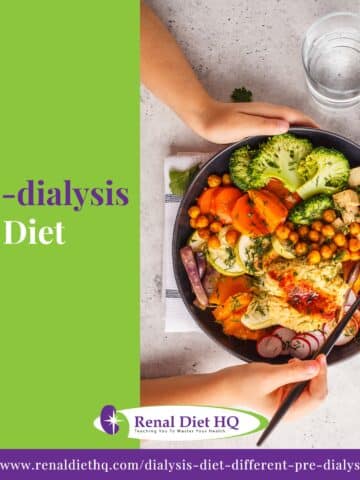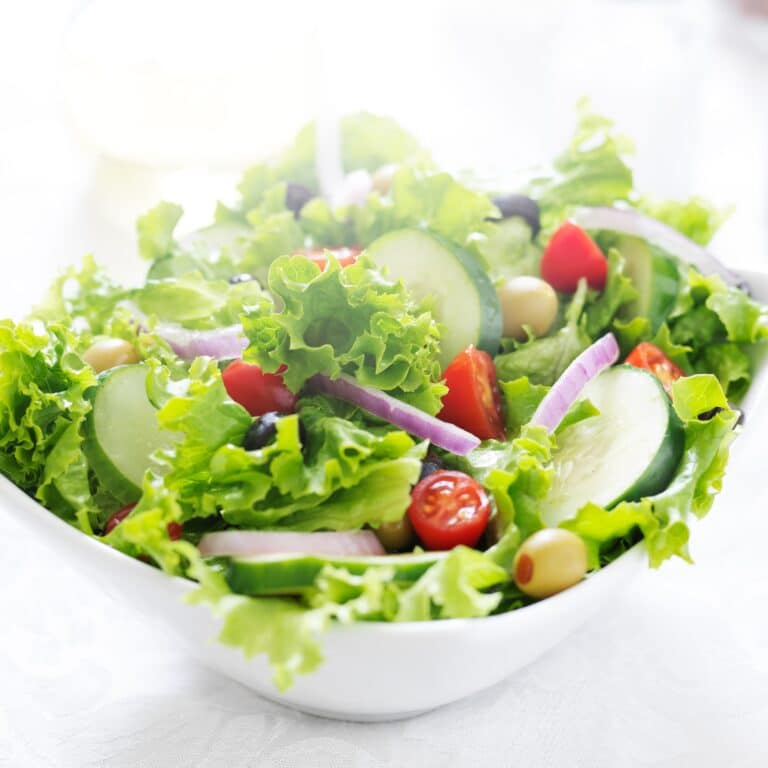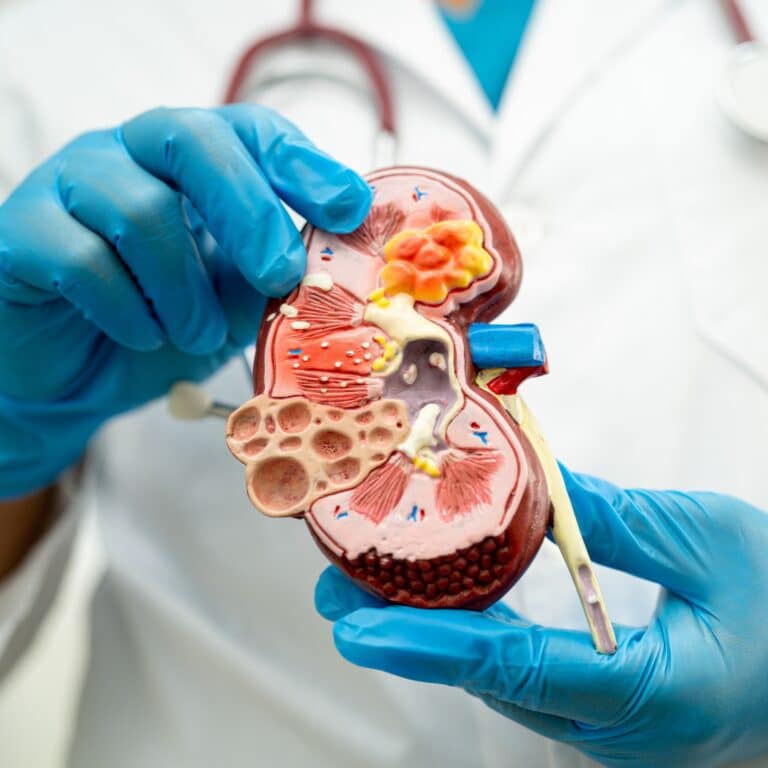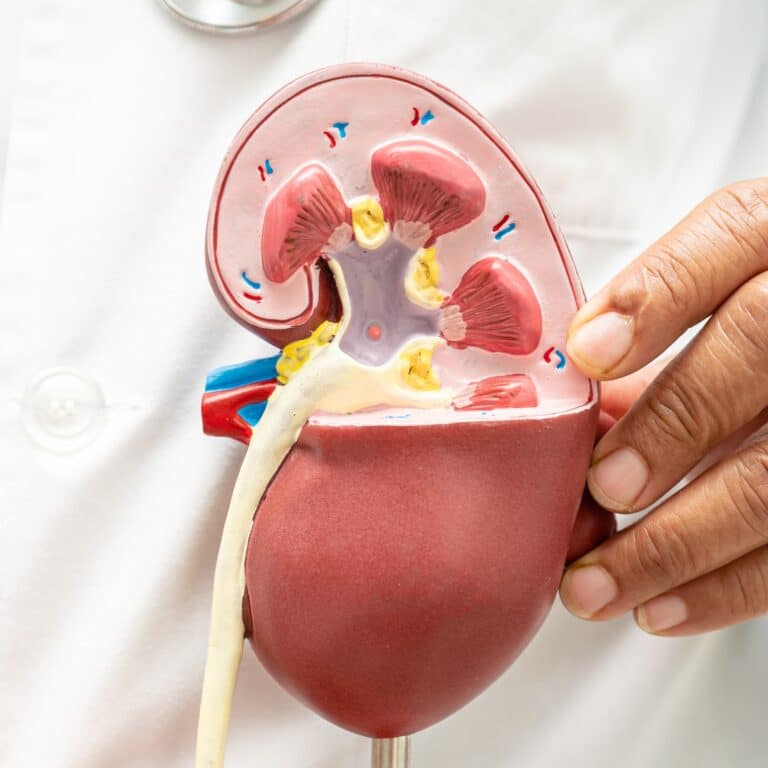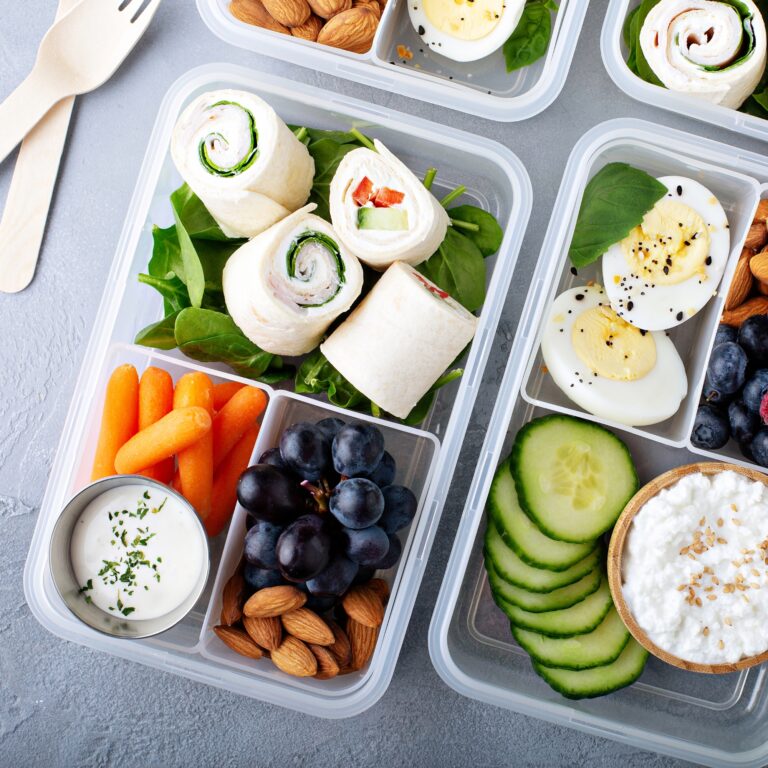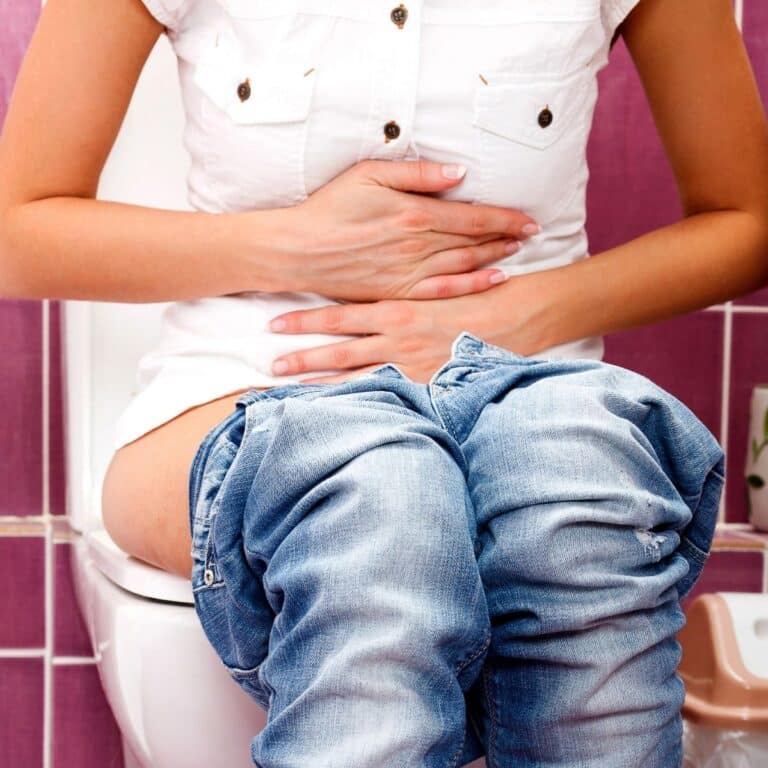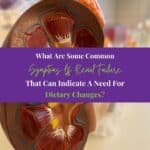Renal Failure Diets
You're on a mission to help those with renal failure live healthier lives. Understanding the role of diet is key, and we've got you covered.
We'll discuss crucial dietary restrictions, sodium control, protein management, heart-healthy choices, and more.
You'll develop strategies for effectively managing phosphorus and potassium intake too.
It’s time to discover how a balanced renal failure diet can make all the difference.
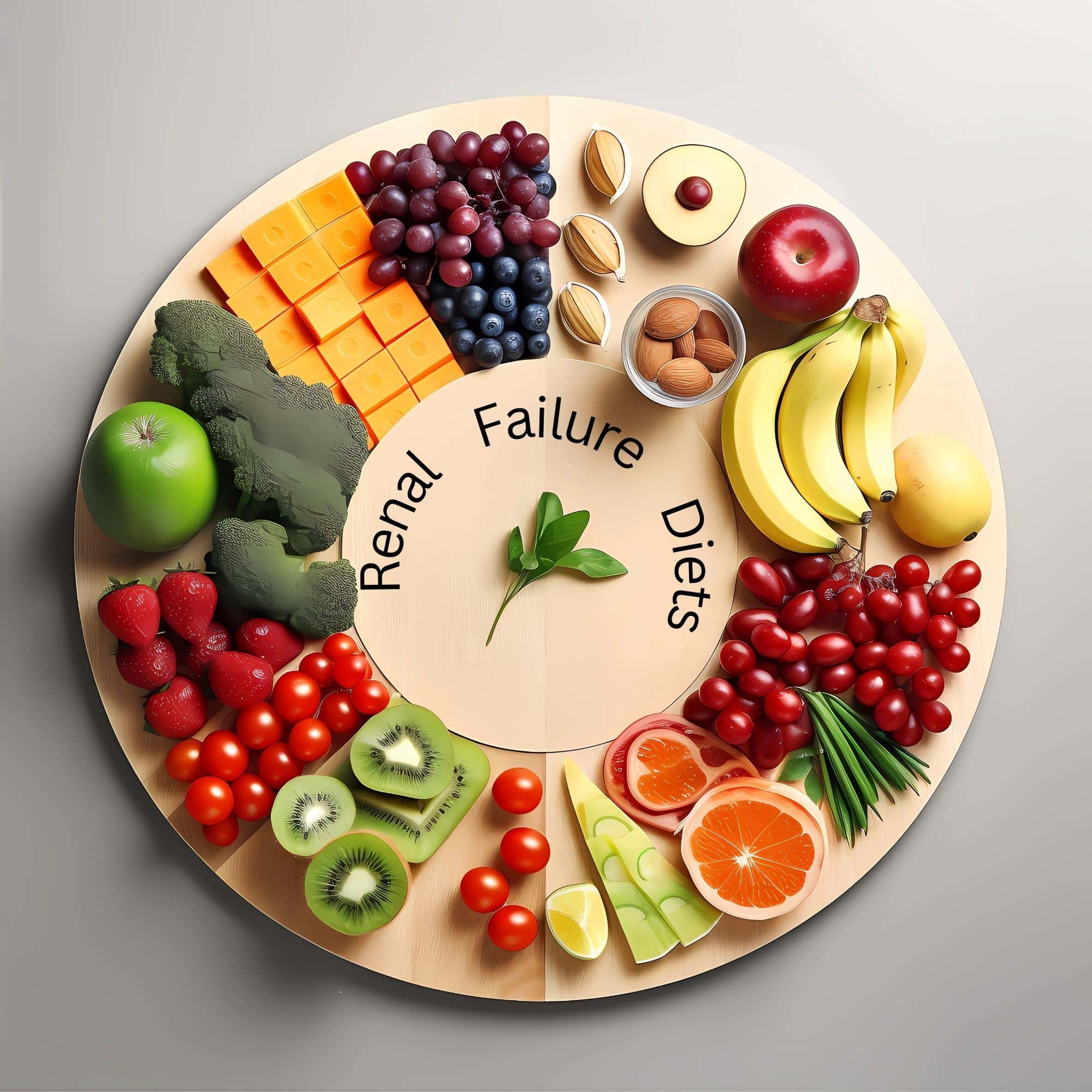
Jump to:
- Key Takeaways
- Understanding the Role of Diet in Renal Failure
- Crucial Dietary Restrictions for Kidney Health
- The Importance of Sodium Control in Renal Diets
- Advantages of Following a Renal Failure Meal Plan
- Strategies for Reducing Sodium in Your Diet
- The Role of Protein in a Renal Failure Diet
- Making Heart-Healthy Choices for Renal Health
- How to Manage Phosphorus Intake Effectively
- Tips for Balancing Potassium Intake in Renal Diets
- FAQs for Renal Failure Diets
- Eating A Diet For Renal Failure Helps Improve Your Health
Key Takeaways
- Diet plays a crucial role in managing renal failure and can either strain or support kidney function.
- Nutrient-rich foods like watermelon and kidney beans can support kidney function due to their high water content, essential nutrients, fiber, and low sodium levels.
- Controlling nutritional intake, including limiting sodium and protein intake, is essential for managing kidney health in those with impaired functionality.
- Sodium management is important for maintaining overall health and supporting kidney health. It is crucial to avoid processed foods and incorporate fresh fruits and vegetables to control sodium intake effectively.
Understanding the Role of Diet in Renal Failure
You're about to delve into an insightful discussion that explores the significant impact of diet on kidney health. Specifically, we'll focus on how nutritional control can manage renal failure.
Engaging with evidence-based findings, we'll investigate how certain dietary choices can either strain or support your kidneys' function.
We'll also unravel the potential of nutritionally controlling renal failure, offering a holistic perspective on this critical health issue at any stage of kidney disease.
For More Recipes and Ideas --->> Get Your Free Meals and Recipes That Are Perfect for Pre-Dialysis Diets, Pre-Dialysis with Diabetes, or Dialysis Diets.
Diet's Impact on Kidneys
It's crucial to understand how diet directly impacts kidney health, particularly for those with renal failure. You can optimize your' health by focusing on three main dietary aspects:
- Kidney Hydration: Encourage increased water intake. It helps flush out nephrotoxic substances and maintains kidney function.
- Detoxifying Herbs: Promote herbs like parsley and dandelion root that have a diuretic effect to help cleanse the kidneys.
- Nutrient-Rich Foods: Recommend foods like watermelon and kidney beans which are high in essential nutrients beneficial for the kidneys.
Watermelon benefits include its high water content aiding in hydration and providing important vitamins. Kidney beans, apart from being heart-healthy, also support kidney function due to their fiber content and low sodium levels for people with kidney disease.
There are a few simple things that you should avoid like orange juice, white bread, and heavy convenience foods. Try to stick to a healthy meal as often as you can. Frozen meals and premade meals can get in the way of your health and contain excess phosphorus and excess amounts of sodium.
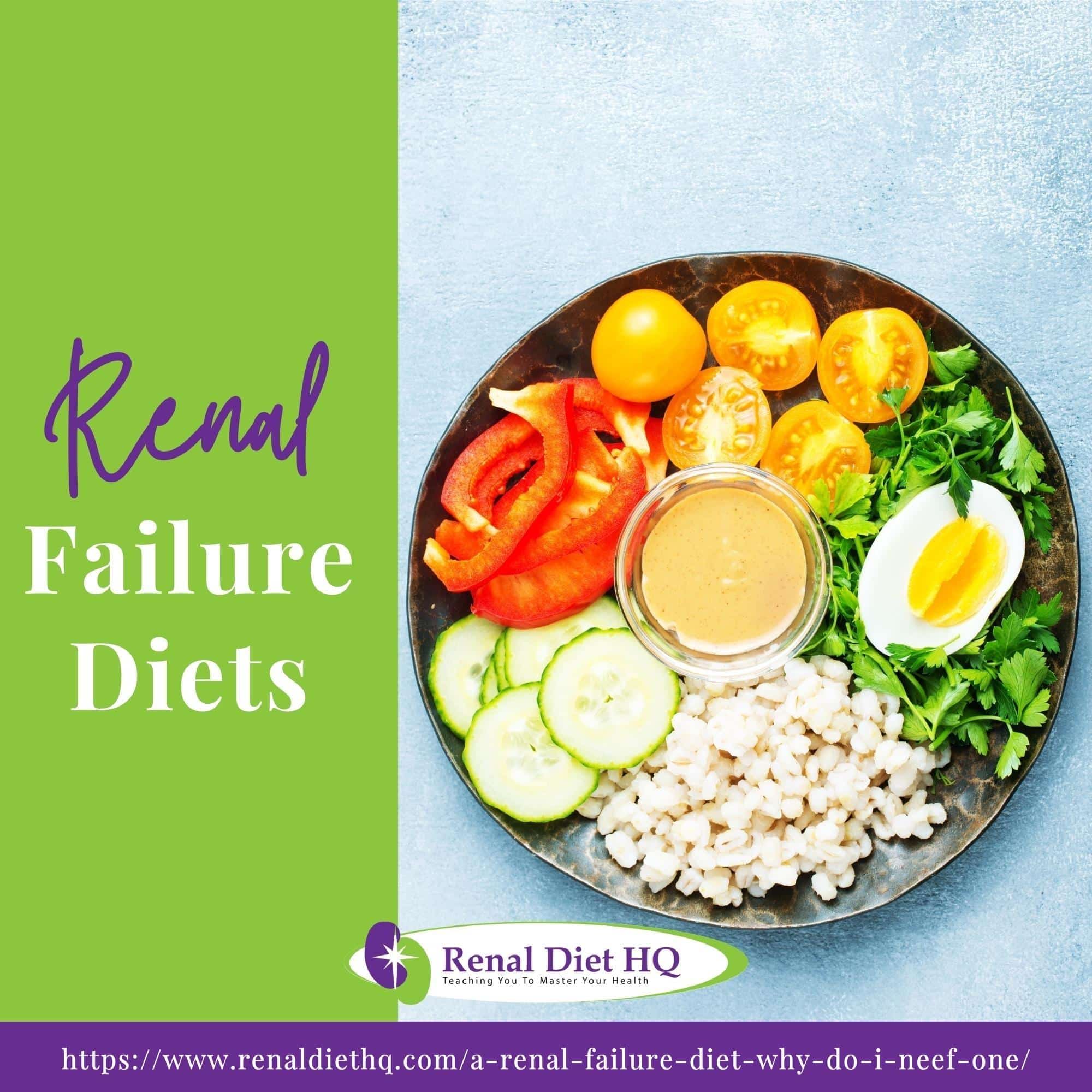
Controlling Renal Failure Nutritionally
Controlling nutritional intake can significantly impact kidney health, especially in those dealing with impaired functionality. Kidney-friendly recipes and vegan renal diets are essential tools for managing your condition. These diets limit proteins, phosphorus, and sodium while providing necessary nutrients.
Hydration importance cannot be overstated; adequate water intake helps kidneys clear sodium, urea, and toxins from the body.
Exercise plays a vital role too! It aids in maintaining healthy blood pressure levels which directly influences kidney health. However, you've to be aware of medication interactions, as certain drugs might affect nutrient absorption or cause damage when combined incorrectly.
Always consult your healthcare provider, before making dietary changes, or starting new medications to ensure safety. You're not just what you eat, but how you manage what you consume.
Crucial Dietary Restrictions for Kidney Health
When managing kidney health, it's crucial that you understand the significance of limiting your sodium and protein intake, as well as balancing potassium consumption.
Studies have found that excessive sodium can exacerbate hypertension and cause further damage to the kidneys, while overconsumption of protein may lead to a buildup of waste products in your bloodstream.
On the other hand, maintaining an appropriate balance of potassium is key for nerve function and muscle control, but too much can be harmful, if your kidneys aren't fully functional.
Pay attention to ingredient labels, ingredient list, diet plans, and talk to your health professional if you have any questions.
Limiting Sodium and Protein
You'll need to be mindful of your sodium and protein intake to manage your renal failure effectively. Protein alternatives, like tofu or lentils, can provide essential nutrients without overloading your kidneys. Sodium substitutes are another vital component, opt for herbs and spices instead of salt to flavor foods.
- Diet Optimization - A balanced diet is crucial for maintaining health, while managing kidney disease.
- Nutrient Absorption - Consuming the right nutrients in the correct amounts helps your body function optimally.
- Fluid Management - This doesn't just mean water, monitor intake of other fluids like coffee or juice too.
Balancing Potassium Intake
It's important to strike a balance with your potassium intake, as too much can be hard on the kidneys. A diet filled with kidney friendly fruits and low potassium snacks is crucial for maintaining health. Potassium rich recipes might be tempting, but they could pose a risk, especially when combined with potassium supplements.
| Food Type | Examples | Potassium Content |
|---|---|---|
| Fruits | Apples, Berries | Low |
| Snacks | Rice cakes, Popcorn | Low |
| Supplements | Risks outweigh benefits | High |
Potassium level monitoring becomes important for those in service to others who have renal diseases. Be cautious about supplements as the risk of consuming high potassium can lead to serious health issues. In essence, balance is key, not too much or too little will ensure optimal kidney function.
The Importance of Sodium Control in Renal Diets
As you get deeper into the complexities of renal diets, it's crucial to understand sodium's key role in this context. Sodium management is not just essential for maintaining overall health, but it's particularly vital when caring for your kidneys.
Drawing from evidence-based findings, we will discuss how sodium affects kidney function and provide detailed strategies for effective sodium control tailored to support kidney health.
Sodium's Role in Renal Diets
Sodium's crucial in a renal diet because it helps control your body's fluid balance. Understand the sodium sources and ensure hydration importance to maintain this balance.
Processed foods, a major source of dietary salt, should be avoided as they often contain high levels of sodium which can lead to health implications such as hypertension, heart disease, and kidney damage.
Consider these steps:
- Incorporate fresh fruits and vegetables into your meals.
- Choose unprocessed lean proteins.
- Read food labels carefully for sodium content.
Managing Sodium for Kidneys
You've got to manage your sodium intake effectively to ensure good kidney health. Sodium intake awareness is critical, too much sodium can damage your kidneys over time.
Hydrating responsibly goes hand in hand with this, as water helps flush out excess sodium. Reading food labels becomes second nature when you're committed to maintaining kidney health; keep an eye out for hidden sodium sources.
Opt for kidney-friendly snacks like fresh fruits and vegetables instead of processed foods. Processed foods avoidance not only reduces your sodium consumption, but also other harmful substances such as preservatives and artificial flavors.
In short, managing your diet thoughtfully can make a significant difference in the longevity and functionality of your kidneys.
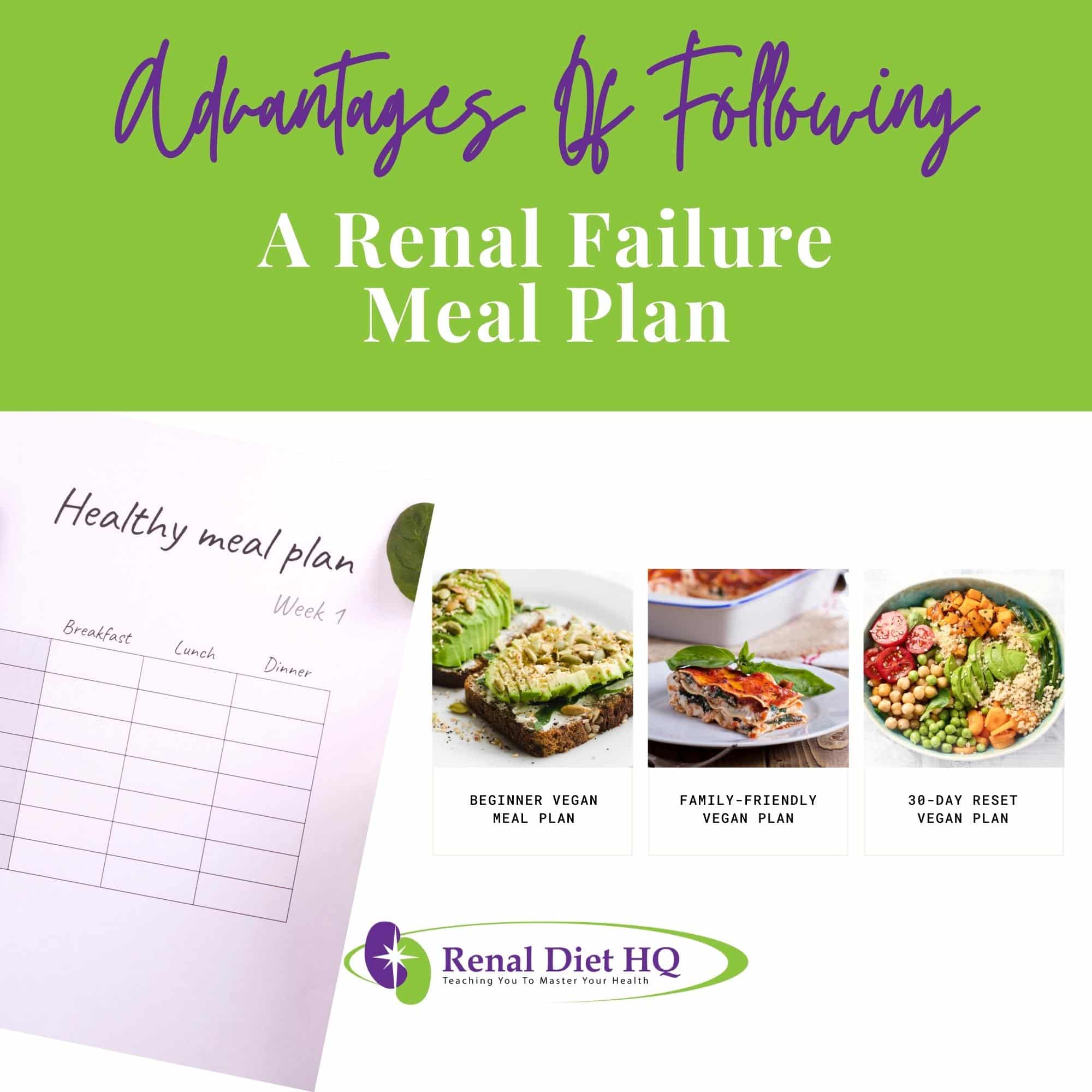
Advantages of Following a Renal Failure Meal Plan
As you dig deeper into the world of renal failure diets, it's crucial to understand the significant health benefits a well-structured meal plan can provide.
Not only does it promote better kidney health, but it also aids in maintaining overall wellness and mitigating disease progression.
A dietitian plays an indispensable role in this planning process, utilizing evidence-based findings to customize a nutritional plan that fits your specific needs and preferences. All this while ensuring your body receives all necessary nutrients for optimal function.
You may also know that individuals with kidney disease do refer to kidney failure as different names. Advanced kidney disease, following a kidney-friendly diet, chronic diseases, may be all things that people with kidney failure deal with.
Health Benefits of Meal Plans
Incorporating this meal plan can significantly improve your health by reducing strain on your kidneys. It emphasizes the importance of hydration, meal timing, managing cravings, the role of fiber, and the usage of probiotics. Each of these factors plays a crucial role in ensuring you stay healthy while dealing with like as a person with kidney failure.
- Hydration Importance: Adequate fluid intake keeps your kidneys functioning optimally.
- Meal Timing: Regular meals prevent sudden spikes or drops in blood sugar, helping to manage cravings.
- Role of Fiber and Probiotics Usage: Fiber aids digestion, and probiotics ensure a healthy gut environment.
Dietitian's Role in Planning
Working with a dietitian can help you tailor your meal plan to meet your specific needs and preferences. A dietitian's expertise lies in interpreting lab results, therapeutic communication, patient education, and individualized meal planning. They translate complex medical jargon into understandable information for you.
| Dietitian's Role | Impact |
|---|---|
| Interpret Lab Results | Understand the implications of your health data |
| Therapeutic Communication | Establish trust and openness for effective treatment |
| Individualized Meal Planning | Tailor nutritional advice to personal circumstances |
A dietitian guides you through understanding your renal failure dietary requirements. Their professional advice is based on evidence-based findings that are proven to work. As someone who desires serving others, their goal is not just about providing information but also ensuring understanding and application of this knowledge for better health outcomes.
Strategies for Reducing Sodium in Your Diet
You've likely heard about the importance of monitoring sodium intake for overall health, but you may be unsure about how to go about it in your daily cooking.
This discussion will delve into evidence-based strategies that can help you control sodium levels in your meals, focusing on sodium-free seasoning alternatives that can enhance flavor without adding unnecessary salt.
We'll also explore practical techniques for managing sodium content during cooking, helping you to create healthier and more balanced dishes.
Sodium-Free Seasoning Alternatives
It's important to explore sodium-free seasoning alternatives when managing a renal failure diet. This not only helps protect your kidneys, but also enhances the flavor of your meals without the harmful effects of salt. Here are some options you can consider:
- Herb Infusions: Fresh or dried herbs such as basil, rosemary, and thyme can infuse dishes with rich flavors.
- Spice Combinations: Try blends like turmeric and black pepper or cumin and coriander for an explosion of taste.
- Aromatics Usage: Ingredients like garlic, onions, and bell peppers add depth to any dish.
- Umami Enhancers: Mushrooms or nutritional yeast create savory notes.
- Vinegar Varieties: A splash of balsamic or apple cider vinegar can brighten flavors.
Embrace these alternatives; they're not just healthier choices but also opportunities to elevate your culinary skills while serving others well.
Controlling Sodium in Cooking
Building on sodium-free seasoning alternatives, let's delve into the broader topic of controlling sodium in cooking.
You can make use of sodium detection techniques to monitor your food's salt content effectively. Understanding these methods will help you regulate your intake, which is crucial for kidney health.
Additionally, homemade sodium substitutes such as herbs and spices can be excellent options for flavor without adding any harmful amounts of salt.
While diuretics play a role in managing fluid balance, they're not a solution to a high-sodium diet.
Cooking without salt may seem challenging initially, but with practice and creativity, it becomes manageable and rewarding.
Also, consider low sodium beverage options to complement your meals - an integral part of maintaining a healthy renal diet.
The Role of Protein in a Renal Failure Diet
As you navigate the complexities of a renal failure diet, understanding protein consumption guidelines is crucial. You'll learn that not all proteins are created equal - the source matters, often boiling down to a comparison between animal and plant proteins.
Drawing on evidence-based findings, this discussion will provide detailed insights into which types of protein may be most beneficial for your health and how to integrate them into your daily meals effectively.
Protein Consumption Guidelines
You'll need to monitor your protein intake carefully when managing renal failure. This involves understanding Protein Sources, exploring Protein Alternatives, and practicing Protein Moderation. You should also be aware of any Protein Misconceptions and consider the use of Protein Supplementation if necessary.
- Protein sources - Not all proteins are created equal. It's vital that you choose high-quality protein from lean meats, fish, and poultry.
- Protein alternatives - Don't forget about plant-based proteins! Foods like lentils, black beans, and quinoa can provide essential amino acids without overloading your kidneys.
- Protein moderation - Even too much of a good thing can be harmful in renal failure. Monitor your portions to avoid exacerbating kidney damage.
Remember: managing renal failure isn't just about restriction—it's about making informed choices for better health.
Animal Vs Plant Protein
In the battle between animal and plant protein, it's essential to understand that they're not all created equal. When comparing protein sources, you should consider a variety of factors, such as nutrient density and potential health implications.
Plant-based benefits include lower risks of heart disease and obesity. Vegan diet implications may involve deficiencies in certain nutrients if not properly planned; yet, smart choices can offer a rich spectrum of nutrients beyond just protein.
Conversely, some animal proteins carry dangers like high saturated fat content which can lead to cardiovascular issues. Non-dairy alternatives are excellent sources of plant protein too – quinoa and lentils being prime examples.
It's critical for you to make informed decisions about protein intake considering your unique health needs.
Making Heart-Healthy Choices for Renal Health
As you navigate the complexities of maintaining renal health, it's crucial to make heart-healthy choices that take into account your cooking methods and dietary intake.
Studies show that choosing cooking methods wisely, such as grilling or steaming instead of frying, can significantly reduce the risk of further kidney damage by limiting saturated fats intake.
It's not just about what you eat but also how you prepare your meals; this approach helps in managing your overall calorie consumption and contributes to improved cardiovascular health - a key aspect for individuals dealing with renal failure.
Choosing Cooking Methods Wisely
Choosing cooking methods wisely can significantly impact the success of a renal failure diet. Steaming benefits include retention of nutrients and elimination of added fats - an ideal choice for kidney care.
Grilling imparts flavor without unhealthy additives, while slow cooking allows for tender meals without excess sodium or fats. Microwave usage can be a quick, healthy option when used to steam vegetables or reheat prepared dishes. Stir frying techniques provide quick, high heat cooking that seals in flavors and nutrients with minimal oil.
When preparing meals:
- Consider the nutritional impact of your cooking method.
- Choose techniques that preserve natural flavors and nutrients.
- Avoid methods that require excessive salt or fat.
Limiting Saturated Fats Intake
You'll want to limit your intake of saturated fats, as they can negatively impact your overall health. Fats identification is crucial in making dietary decisions. Instead, choose healthy oils such as olive or avocado oil, known for their unsaturated fats sources and numerous health benefits.
Avocados are particularly beneficial due to their high monounsaturated fat content which can help lower bad cholesterol levels when used instead of saturated or trans fats.
Furthermore, you should try to incorporate more omega-3 fatty acids into your diet due to Omega 3 importance in supporting heart health and reducing inflammation.
Remember that while all fats are high in calories, not all are created equal – so make smart swaps where possible for the sake of those you serve and care for.
How to Manage Phosphorus Intake Effectively
You might be surprised to learn about the prevalent presence of phosphorus in many packaged foods you're consuming daily, and its potential impact on your renal health.
It's essential to understand not only where this hidden phosphorus comes from but also how you can manage it effectively.
This includes discussing the usage of phosphate binders, a treatment option that's proven to control the levels of phosphorus in your body.
Phosphorus in Packaged Foods
It's important to watch out for hidden phosphorus in packaged foods when managing a renal failure diet. Packaged food labeling can be deceiving, so you must keep an eye on phosphorus-rich ingredients and hidden sources. Phosphorus absorption becomes a significant concern with renal failure, requiring careful dietary selection.
Here are three steps to guide you:
- Always scrutinize the labels of packaged foods. Even seemingly non-phosphorus alternatives may contain hidden sources.
- Educate yourself about common phosphorus-rich ingredients present in many pre-packaged foods.
- Opt for fresh produce over processed items whenever possible, to control your phosphorus intake more effectively.
Phosphate Binders Usage
Phosphate binders can be a real lifesaver when used properly to control phosphorus levels. However, you must be aware of the potential side effects, such as constipation or nausea. The key is in the timing of binder administration - it's best taken with meals to maximize their effect.
Understanding phosphorus food labeling is vital too, as managing your intake can decrease the need for high doses of binders. There are different types of binder medications, including calcium-based and non-calcium-based ones. Choosing the right one depends on your specific needs.
The binder's role in dialysis is significant; it helps maintain appropriate serum phosphorus levels, reducing potential heart risks. Remember, phosphate binders aren't a standalone solution but part of a broader strategy to manage kidney health.
Tips for Balancing Potassium Intake in Renal Diets
As you continue on your journey to effectively manage your renal diet, it's critical for you to consider potassium management strategies.
It's well-documented that an overabundance of potassium can lead to serious health issues, especially for those with kidney conditions.
Therefore, understanding and avoiding high-potassium foods is not just a dietary convenience—it's an essential part of maintaining your overall health. If you have any questions, you can speak to your renal dietitian.
What kind of cheese can be added to this diet with ease?
- Cottage cheese
- Feta cheese
- Light cream cheese
Potassium Management Strategies
Managing potassium levels effectively is vital in renal failure diets. You need to be mindful of the foods you consume, especially with potassium-rich recipes. It's crucial to consider medication interactions and the role they can play in your diet. Herbal supplements may seem harmless, but they too can affect your potassium levels adversely.
- Start by incorporating kidney-friendly fruits into your diet - these are low in potassium but high in essential nutrients.
- Pay attention to how exercise influences your body's ability to regulate potassium; staying active helps maintain balance.
- Educate yourself on potential medication interactions that could derail your carefully planned meals.
Avoiding High-Potassium Foods
You'll need to be careful about avoiding high-potassium foods in your daily meals, as they can disrupt the balance of nutrients in your body. For instance, potassium-rich fruits like bananas and avocados should be consumed sparingly. Even mineral water may pose dangers if it's naturally high in potassium.
Herbal supplements are not always benign either; some contain substantial amounts of this mineral, thereby posing risks for those needing a low-potassium diet.
Dairy products require consideration. While they provide essential calcium, their potassium content can be problematic. Figuring out a kidney-friendly eating plan is important.
FAQs for Renal Failure Diets
You may need to adjust your diet if you're experiencing symptoms of kidney problems. These can include fatigue, changes in urine output, trouble sleeping, and a loss of appetite.
It's crucial to recognize these symptoms early for effective dietary adjustments. This involves nutrient monitoring, fluid regulation, and maintaining electrolyte balance.
Yes, adhering to dietary restrictions can significantly slow down disease progression. By focusing on kidney health and understanding the dietary impact, you're supporting your body's natural systems.
It's not just about what you eat, but also how these foods interact with your body. A well-managed diet acts as a support system for your kidneys, potentially delaying the need for more aggressive treatments.
Changing your diet can certainly impact your emotional and mental health. It's not unusual to experience dietary depression or mood swings when adjusting to new food restrictions.
However, with strong emotional coping strategies and mental resilience, you'll manage these changes more effectively. Stress management techniques can also aid in navigating this new lifestyle.
Yes, exercise can assist in managing renal failure. Exercise benefits include improved physical function and quality of life.
However, the impact on dialysis treatment must be considered. You should tailor training intensity to your individual capacity and take necessary precautions.
Consult with healthcare professionals for activity recommendations that suit your condition.
Eating A Diet For Renal Failure Helps Improve Your Health
In conclusion, managing your renal health through diet is crucial. Restricting sodium, balancing protein, and controlling phosphorus and potassium intake can significantly improve kidney health.
Heart-healthy choices also play a key role. By following a structured renal failure meal plan, you'll not only enhance your kidney function but also boost overall wellness.
You can still enjoy things like BBQ sauce, marinara sauce, homemade soups, cola drinks, roast beef, and beet greens. You have to be able to homemade meals portion under control as well! A kidney support diet can help support end-stage kidney disease and help avoid kidney infections.
Remember, every step taken towards a healthier diet is a stride towards better renal health. Portion size and proper blood sugar levels are both vital parts of renal failure diets.


